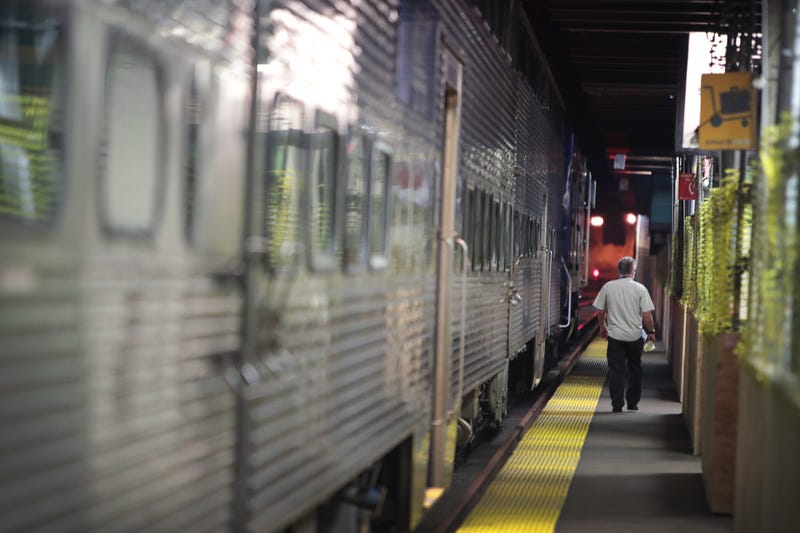
CHICAGO (WBBM NEWSRADIO) -- The COVID-19 pandemic changed the way we work and the way we get to work. Metra commuter trains, which were once crowded during rush hours, were empty as offices required their employees to work from home in March of 2020.
"The week of March 5, 2020 we watched ridership tumble from whatever 100 percent was at that time all the way down to 15 percent," said Metra Executive Director Jim Derwinski.
"Then the following week, it was almost like everybody who didn't know how to work from home came into the office that Monday, grabbed their stuff, and then they moved out."
Metra provided 74 million rides in 2019. That number fell to 14 million in 2021 as downtown office workers continued to work from home. The agency's latest budget projects ridership to reach 52 million by 2025.
Working from home also impacted another way people use Metra. Snow and ice used to force drivers to use the train. Now, Derwinski said, they work from home instead.
"We used to call those 'Metra Days.' Big snowstorm means more people got on the train," Derwinski said.
That has since changed.
"What we have to assess over the next couple of years is when those snowstorms occur or those weather events occur and people have the ability to work from home, do we adjust our operational profile," Derwinski said.
The clock is ticking, because federal COVID-19 aid dollars are covering the loss in ticket revenue. That money will run out in two years and Metra will have to find a way to make up for those lost funds. Derwinski hopes that can be done with a recovery in ridership.
However, he told WBBM's "At Issue" program that there is a budgetary bright spot.
"One positive note is people in the region have been buying a lot more stuff online, and because of that, our tax numbers for the region, for the RTA, have been coming in better than historic(al levels)," Derwinski said.
Metra has been experimenting with expanded schedules on several lines that offer both regular rush hour service as well as additional options during the midday hours and at night. He said the experiment is working.
"On the lines where you have the more robust schedule you see a shift to the widening of the rush hour and the use of the discretionary period," Derwinski said.
"On the lines where we haven't been able to put back the full schedules or we still have limited schedules, we're certainly not seeing the 2019-type numbers."
There is still a question over whether the $100 super-saver monthly pass will continue. Derwinski said it hasn't attracted new riders, but it has encouraged occasional riders to purchase the monthly pass.
Listen to WBBM Newsradio now on Audacy!
Sign up and follow WBBM Newsradio
Facebook | Twitter | Instagram


